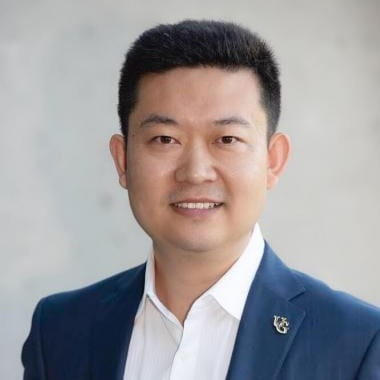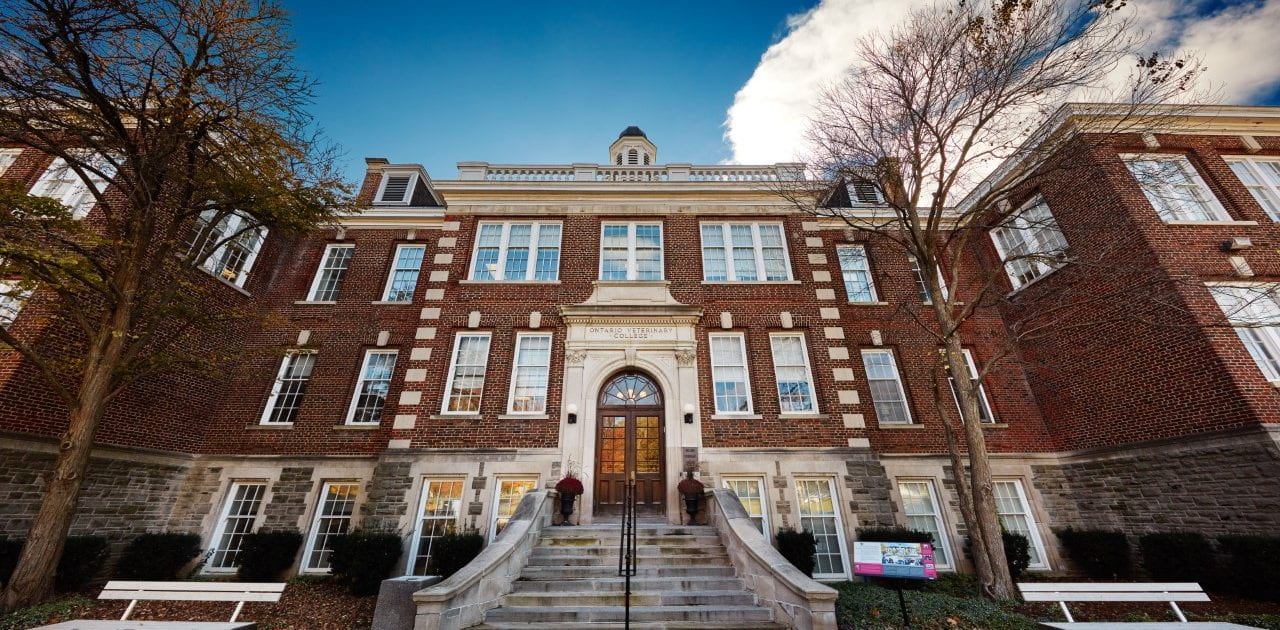Meet Dr. Wei Zhang

PhD
Keywords: Signal transduction, synthetic biology, protein engineering, DNA repair, cancer therapeutics, ubiquitin signaling, protein-protein interactions
Profile(s): Department of Molecular and Cellular Biology, Research Laboratory Page
Current Positions:
- Assistant Professor – Department of Molecular and Cellular Biology, College of Biological Science, University of Guelph, Guelph, ON.
- Azrieli Global Scholar – Molecular Architecture of Life program, Canadian Institute For Advanced Research (CIFAR)
Seeking Academic or Industry Partnerships in the Areas of (Optional/Consider!):
Protein Delivery, Drug Discovery, Target Validation
Education and Employment Background:
- BSc – School of Life Sciences, Beijing Normal University (Beijing, China)
- PhD – Department of Molecular Genetics, University of Toronto; Lunenfeld-Tanenbaum Research Institute, Mount Sinai Hospital (Toronto, ON)
- Postdoctoral Fellow – The Donnelly Centre for Cellular and Biomolecular Research, University of Toronto (Toronto, ON)
Research Themes & Interests:
My broad research interests are in the field of cellular signaling, protein engineering, chemical biology, and cancer therapeutics. The overarching goal of my laboratory is developing synthetic probes to manipulate human cell signal transduction cascades to identify new biological mechanisms and devise innovative therapeutic strategies. We are also collaborating with researchers from Canada and around the globe in both academic and industrial sectors. To date, I have published 24 papers in high-profile journals and 3 patents (1 granted, 2 pending) describing our work on a variety of protein-protein interactions that are critical for cancer signal transduction, host-pathogen interactions, DNA repair, and CRISPR-Cas9 genome editing.
Recent Research Focuses & Partnerships:
- Development of synthetic proteins to modulate human deubiquitinases
- Engineering post-translational modifications to probe and rewire DNA damage response
- Induced proximity with E3 ubiquitin ligases for targeted protein degradation
Recent Achievements and Contributions:
- Systematic development of protein modulators for ubiquitin-interacting proteins – Zhang et al. Molecular Cell 2016 [Patent granted]; Gabrielsen et al. Molecular Cell 2017
- Generated anti-viral reagents for middle east respiratory syndrome (MERS) coronavirus – Zhang et al. PLoS Pathogens 2017 [Patent Pending]
- Created molecular tools to increase CRISPR-CAS9 genome editing efficiency – Canny et al. Nature Biotechnology 2018 [Patent Pending]
Select Publications:
- Veggiani G, Gerpe MCR, Sidhu SS, Zhang W. (2019) Emerging drug development technologies targeting ubiquitination for cancer therapeutics. Pharmacology & Therapeutics 119, 139-154.
- Zhang W, Sidhu SS. (2018) Drug development: Allosteric inhibitors hit USP7 hard. Nature Chemical Biology 14, 110-111.
- Canny MD, Moatti N, Wan LC, Fradet-Turcotte A, Krasner D, Mateos-Gomez P, Zimmermann M, Orthwein A, Juang YC, Zhang W, Noordermeer SM, Seclen E, Wilson MD, Vorobyov A, Munro M, Ernst A, Ng TF, Cho T, Cannon P, Sidhu SS, Sicheri F, Durocher D. (2018) Inhibition of 53BP1 favors homology-dependent DNA repair and increases CRISPR-Cas9 genome-editing efficiency. Nature Biotechnology 36, 95–102.
- Gabrielsen M, Buetow L, Nakasone MA, Ahmed SF, Sibbet GJ, Smith BO, Zhang W*, Sidhu SS*, Huang DT*. (2017) A general strategy for discovery of inhibitors and activators of RING and U-box E3 ligases with ubiquitin variants. Molecular Cell 68, 456-470. (*Co-corresponding authors)
- Zhang W, Ben-David M, Sidhu SS. (2017) Engineering cell signaling modulators from native protein-protein interactions. Current Opinion in Structural Biology 45, 25-35.
- Zhang W, Bailey-Elkin BA, Knaap RCM, Khare B, Dalebout TJ, Johnson G, van Kasteren PB, McLeish N, Gu J, He W, Kikkert M, Mark BL, Sidhu SS. (2017) Potent and selective inhibition of pathogenic viruses by engineered ubiquitin variants. PLoS Pathogens 13(5): e1006372. https://doi.org/10.1371/journal.ppat.1006372
- Zhang W, Wu KP, Sartori MA, Kamadurai HB, Ordureau A, Jiang C, Mercredi PY, Murchie R, Hu J, Persaud A, Mukherjee M, Li N, Doye A, Walker JR, Sheng Y, Hao Z, Li Y, Brown KR, Lemichez E, Chen J, Tong Y, Harper JW, Moffat J, Rotin D, Schulman BA, Sidhu SS. (2016) System-wide modulation of HECT E3 ligases with selective ubiquitin variant probes. Molecular Cell 62, 121-36. ⌘ Highlighted in the issue with accompanied preview: Canadeo LA, Huibregtse JM. (2016) A billion ubiquitin variants to probe and modulate the UPS. Molecular Cell 62, 2-4.
- Zhang W, Durocher D. (2010) De novo telomere formation is suppressed by the Mec1-dependent inhibition of Cdc13 accumulation at DNA breaks. Genes & Development 24, 502-15. ⌘ Highly recommended by Drs. Virginia Zakian (Princeton), David Shore (Geneva), and Katherine Friedman (Vanderbilt) on Faculty of 1000. ⌘ Featured as “Top 7 in Cancer Biology” in March 2011 by The Scientist magazine®
- PubMed Compilation for Dr. Wei Zhang: Link Out
Highlights:
- CIFAR Azrieli Global Scholar in the Molecular Architecture of Life program.
- Currently funded by the following agencies: CIHR, NSERC, Canadian Cancer Society, Cancer Research Society, Canadian Foundation for Innovation, CIFAR
- U of G Awards Funding for COVID-19 Research Projects. University of Guelph News (2020)
- U of G Experts Contributing Key Research to COVID-19 Fight. University of Guelph News (2020)
- U of G Prof Named Among Elite CIFAR Azrieli Global Scholars University of Guelph News (2019)
- Quick Chat: Professor Dr. Wei Zhang SynBio Canada (2019)
- Can Inhibiting Ubiquitin Target Undruggable Tumor Proteins? Cancer Therapy Advisor (2017)
- The Cancer Research Society awards its Scholarships for the Next Generation of Scientists to four young Canadian researchers. Cancer Research Society (2017)
- Rapid Screening of Viral Inhibitors Could Improve Response to Outbreaks. Biotechniques (2017)
- Scientists enlist engineered protein to battle the MERS virus. EurekAlert! (2017)
- New approach to Ebola, SARS leads to research award. Toronto Star (2016)
Contact:
Email: weizhang@uoguelph.ca
Phone: 519-824-4120 x 53823
Office: SSC 2243
Summerlee Science Complex
College of Biological Science
University of Guelph
50 Stone Road E.,
Guelph, ON, Canada, N1G 2W1



